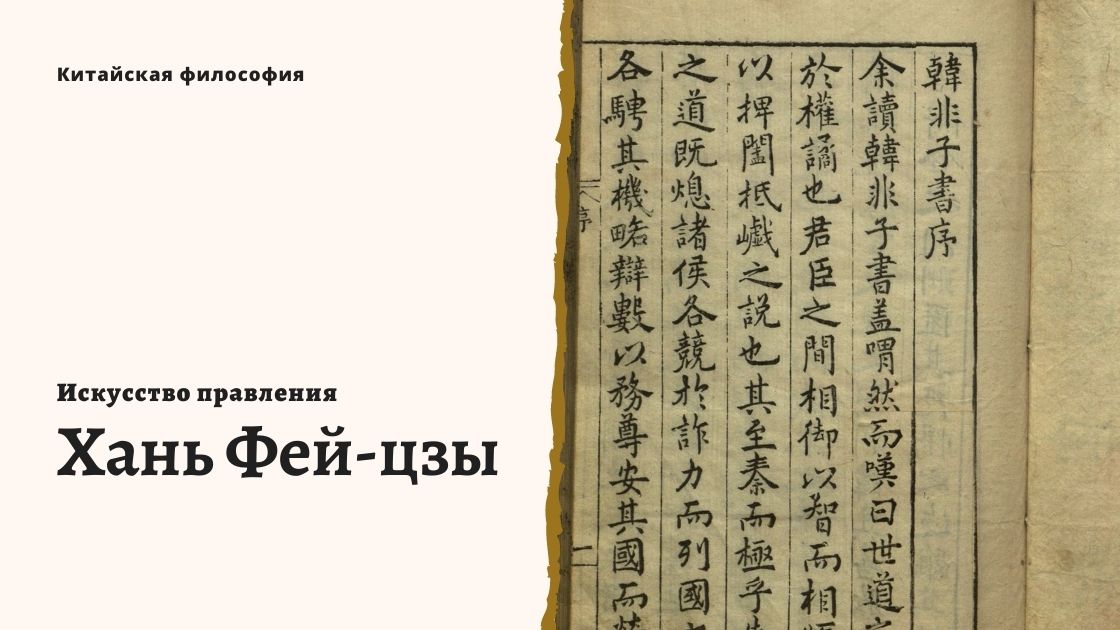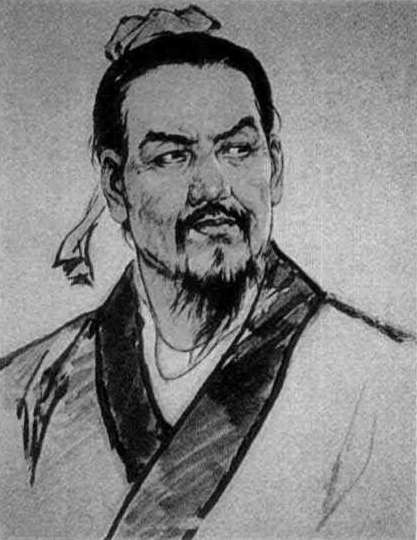Han Fei Tzu: Governance of the State


Han Feizi (韓非) (c. 280-233 BCE) is often noted to have been born into a noble family, in the royal household of the State of Han, in modern Henan Province. Han Fei was a stutterer, but a skilled writer. He and Li Si (d. 208 BCE) were both students of Xunzi. Let us try to understand his thought through the work that bears his name. It is said that the first emperor of Qin, after reading and enjoying the works of Han Fei, launched an attack on the State of Han, which served as a dispatch for Han Fei to the State of Qin. But Han Fei was imprisoned due to political intrigue, because Li Si, his former classmate, was jealous of his talent and favor. Han Fei was forced to commit suicide by taking poison in prison.
Human nature
Han Fei accepts Xunzi's idea that human nature is evil, and thinks that everyone has a "selfish mind" that only considers how to fulfill its own interest in doing things. Thus, Han Fei opposes the Confucian method of humane government and advocates serious criminal law and severe punishments. He becomes a great synthesizer of legalism, based on the thoughts of former legalists about the power of inclination to power, legal regulation, and the art of government.
Man desires power
The tendency to power comes from variations. Different people have this tendency because there are differences in status and ability. There is a completely different relationship between the ruler and those who rule him. This unequal relationship is the source of the tendency to power. Han Fei wanted the rulers to be extremely aware of the tendency to power and to try their best to maintain it. Han Fei adopts Shen Dao's (c. 395–315 BC) idea of the tendency to power and believes that the most important things for the emperor are his position and power. Just as a fish cannot leave the water, the ruler must accept the law while maintaining power.
Legalism was one of the major philosophical currents during the Warring States period. The tendencies that were later called "legalism" have in common the goal of strengthening the ruler's political power, of which law is only one part. The most important surviving texts from this tradition are the Hanfeizi and the Book of Lord Shang. During the Qin period, the ideas of Shang Yang and Li Si were important in building a strong government that eventually defeated its rivals. Legalism was a political-pragmatic philosophy that did not address such lofty questions as the nature and purpose of life. The school of its most famous proponent and participant, Han Feizi, believed that a ruler should use the following three tools to govern his subjects.
Han Fei uses the method of Shang Yang (d. 338 BCE) to emphasize the importance of legal regulation, and suggests that the law should be manifested to the greatest extent possible for the common people. However, Han Fei's idea of legal regulation differs sharply from the Western notion of natural law in that his legal regulation is not based on an eternal universal principle. For Han Fei, the legal system is a system of praise and punishment for the common people, operating in the interests of the rulers.
The basis of state governance
The art of government (shu) is based on the inclination to rule, and works only to maintain this inclination. Han Fei adopts Shen Buhai's (d. 337 BCE) view of the art of government, and argues that government should be unnoticed. For Han Fei, government should be kept secret in the mind of the ruler. Ministers and common people should not understand such thoughts. In this way, the ruler can secretly control the ministers and make them fear him, because they never know his true intentions.
The main reason why the political ruler applied the inclination to power is that the legal regulation and the art of governance was to maintain power and position. Therefore, Han Fei's philosophical thought can be regarded as the mechanism and art of political struggle.
Translation: Alexey Karpov
Original: Chinese Philosophy by Wen Haiming (pp. 57-59)

